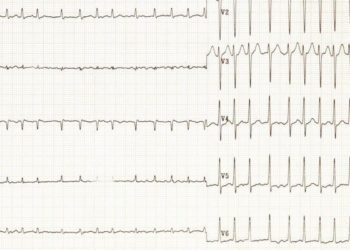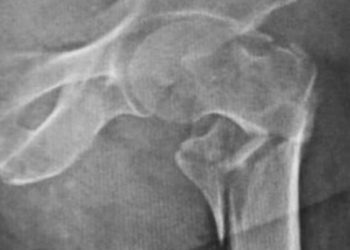Syncope history linked to increased risk of motor vehicle crash
1. Based on a Danish cohort study, a prior diagnosis of syncope was associated with nearly double the incidence of a motor vehicle crash (MVC) compared to the general population.
2. Increased risk of MVC remained constant throughout follow-up and was not different for those with recurrent syncope. There was no “safe waiting period” that could be gathered from this study.
Evidence Rating Level: 2 (Good)
Study Rundown: An episode of syncope while operating a motor vehicle can cause significant morbidity and mortality from a resultant crash. After a first episode of syncope, evidence to guide policy with regards to restrictions to prevent future MVC is lacking. It is unclear whether these individuals are at significantly increased risk of MVC and for how long that risk is high. The described study used Danish national databases to examine the risk of MVC following a hospitalization for syncope.
Following a first time diagnosis of syncope, the incidence of a MVC was nearly double compared to that of the general population. The elevated risk of MVC persisted throughout the follow up period with a median time to MVC of about one year. This study provided insight into the concerns regarding driving safety in patients who experienced syncope. Risk of subsequent MVC was consistently elevated throughout 5 years of follow-up, meaning there was no “safe waiting period” that could be inferred from these data. The absolute risk of collision was small however, and syncope history was only a small part of fitness to drive. The major strength of the study was the nationwide databases were used. The study was limited by the lack of information on causes of syncope, and circumstances surrounding the traffic collisions.
Click to read the study, published today in JAMA Internal Medicine
Relevant Reading: Syncope and Driving
In-Depth [prospective cohort]: The described study utilized the Danish National Patient Register to identify a cohort of 41,039 Danish residents over the age of 18 diagnosed with syncope in hospital or emergency department visit from 2008 to 2012. Data on motor vehicle collisions were also obtained from the same hospital based database or the Cause of Death Registry. Multivariate analysis was performed to account for differences due to gender, age, cardiovascular comorbidities, and pharmacotherapy.
At a mean follow up of 2 years the cohort with prior syncope had greater incidence of MVC per 1000 person years than the general population (20.6 [95% CI, 19.7-21.6] vs. 12.1 [95% CI, 12.0-12.1]. Relative risk following multivariate analysis was 2.04 (95%CI, 1.95-2.14;P < .001]) overall with increased risk in men (RR 1.91) compared to women (RR 1.74). The increased risk persisted throughout the follow up period with 5-year cumulative crash risk among the population aged 18-69 years of 5.1% (95%CI, 4.7%-5.4%) compared to 8.2% (95%CI, 7.5%-8.8%) in those with prior syncope. This effect was less substantial in those >70 years old with 5-year cumulative risk of 3.4% vs. 3.9%. Those with implanted cardioverter-defibrillator did not experience increased risk of MVC. Those with recurrent syncope had similar risk of MVC to those with single admissions for syncope.
Image: PD
©2016 2 Minute Medicine, Inc. All rights reserved. No works may be reproduced without expressed written consent from 2 Minute Medicine, Inc. Inquire about licensing here. No article should be construed as medical advice and is not intended as such by the authors or by 2 Minute Medicine, Inc.




![The ABCD2 score: Risk of stroke after Transient Ischemic Attack (TIA) [Classics Series]](https://www.2minutemedicine.com/wp-content/uploads/2013/05/web-cover-classics-with-logo-medicine-BW-small-jpg-350x250.jpg)


